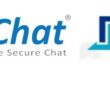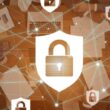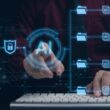Changing concepts of identity underscore ‘Perfect Storm’ of cyber risk
Security teams are facing “the perfect storm” these days, with four seemingly major contributing factors at play: AI and generative AI; geopolitical dynamics; changing regulatory compliance requirements; and, notably, continuing growth in ransomware. They all lead to a very complex threat scenario that requires significant effort from cybersecurity professionals to protect their enterprises. At the heart of these next-gen cyber defenses lies the core concept of identity — and unfortunately, what identity actually entails is significantly shifting.
That’s according to Alberto Yépez, managing director at Forgepoint Capital, who laid out the perfect-storm warning at one of today’s Dark Reading Virtual Event keynote sessions focusing on “Game-Changing Cybersecurity Technologies.”
Yépez noted that, for instance, security teams can’t combat ransomware through one solution alone. Ultimately, the goal a threat actor has in using ransomware is to access sensitive, valuable data located in someone’s network, and they do that by attacking a core networking principle that affects many different systems. “They want to try to compromise your identity,” says Yépez, because that’s the entry into the rest of the kingdom.
“The moment [threat actors] get in, they try to exploit vulnerabilities in your network. They go and search for known vulnerabilities either in your own personal device or in your servers or network,” he said. “They stay in your network and try to understand what information becomes critical for them so that they can benefit the most.”
Developing Next-Gen Identity Protection Solutions
When it comes to the identity technologies that companies use to protect themselves, Yépez argued that they aren’t fully serving us anymore. Users need to be vigilant about protecting their credentials if they want to protect their personal identifiable information (PII), but the key to addressing these problems goes beyond just developing new identity management solutions and practices. We also need to change our perspective of what identity is and what it is becoming.
To read the complete article, visit Dark Reading.

















